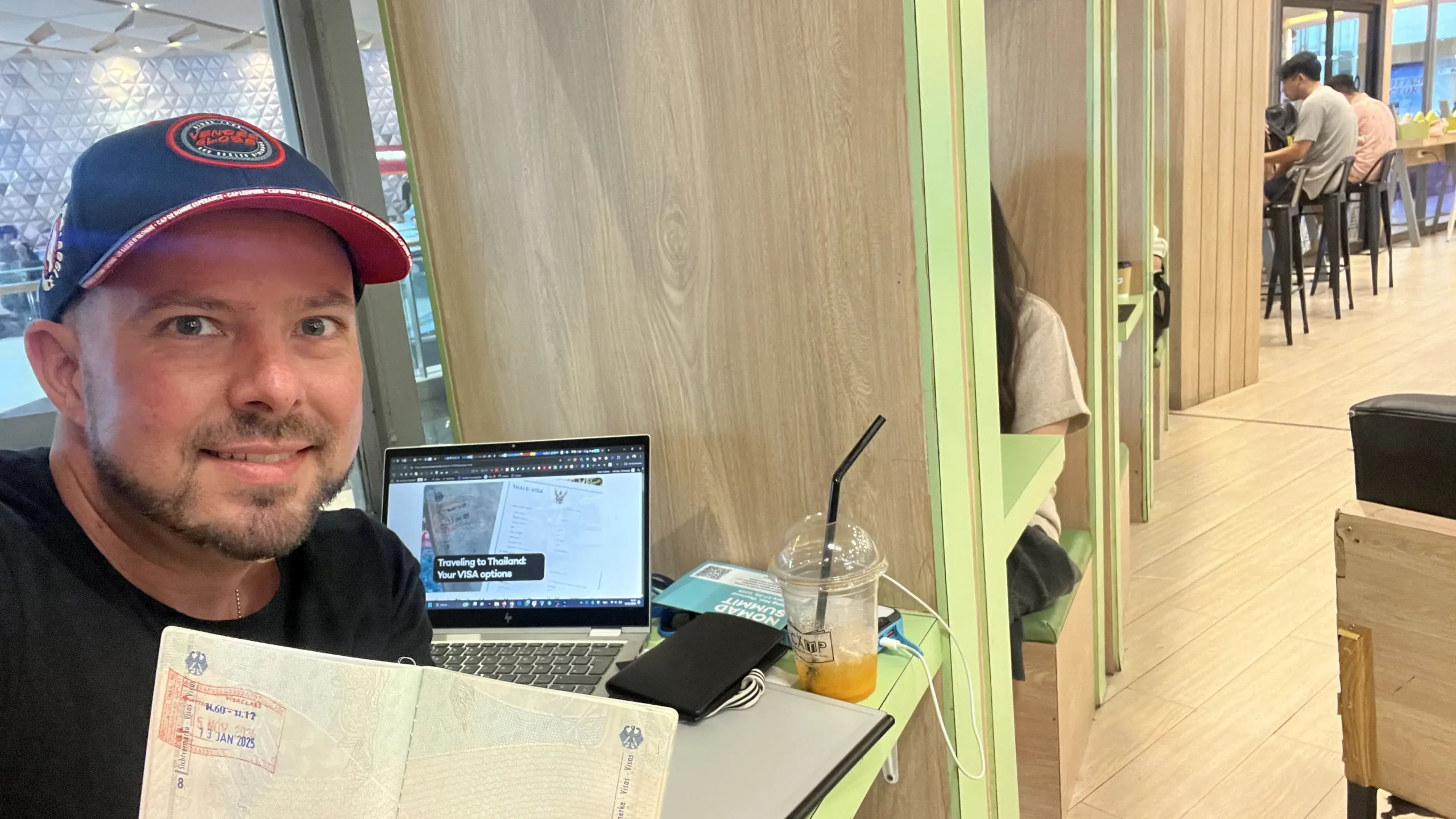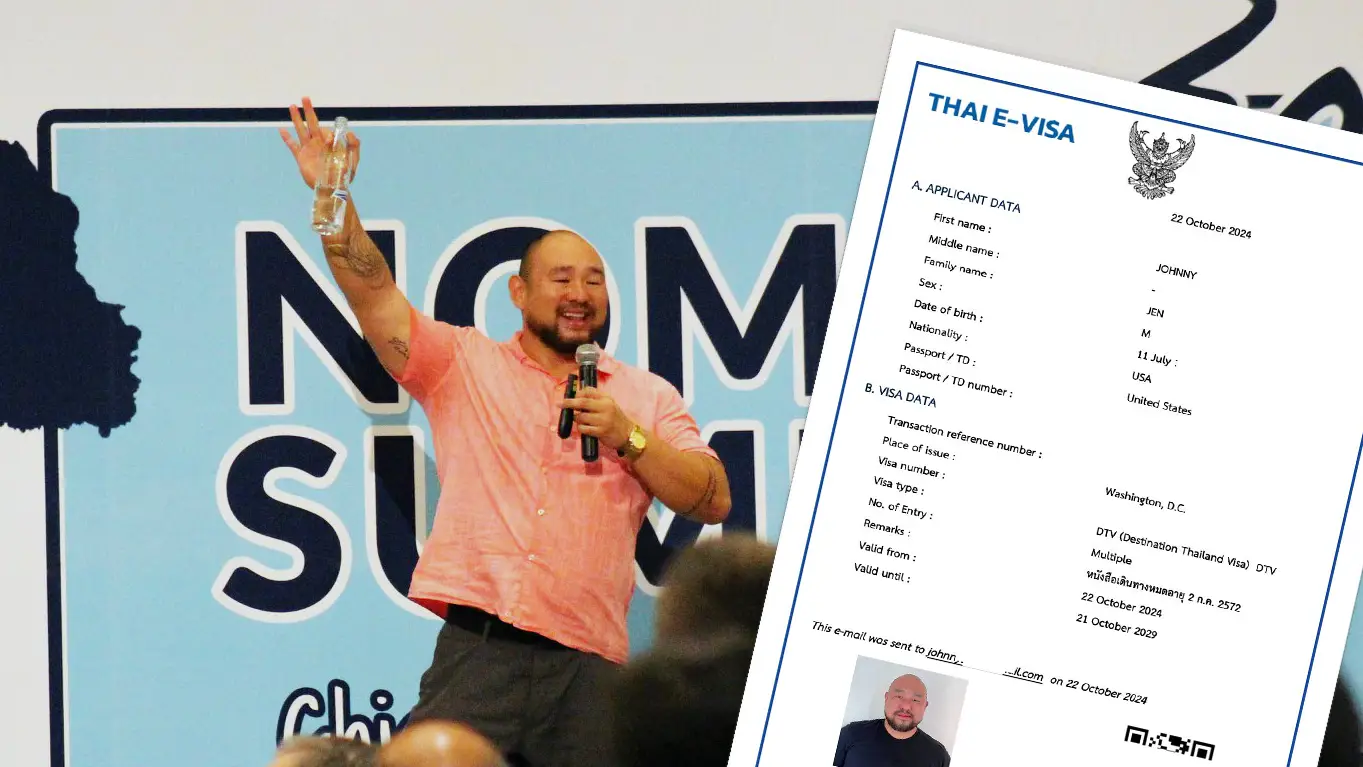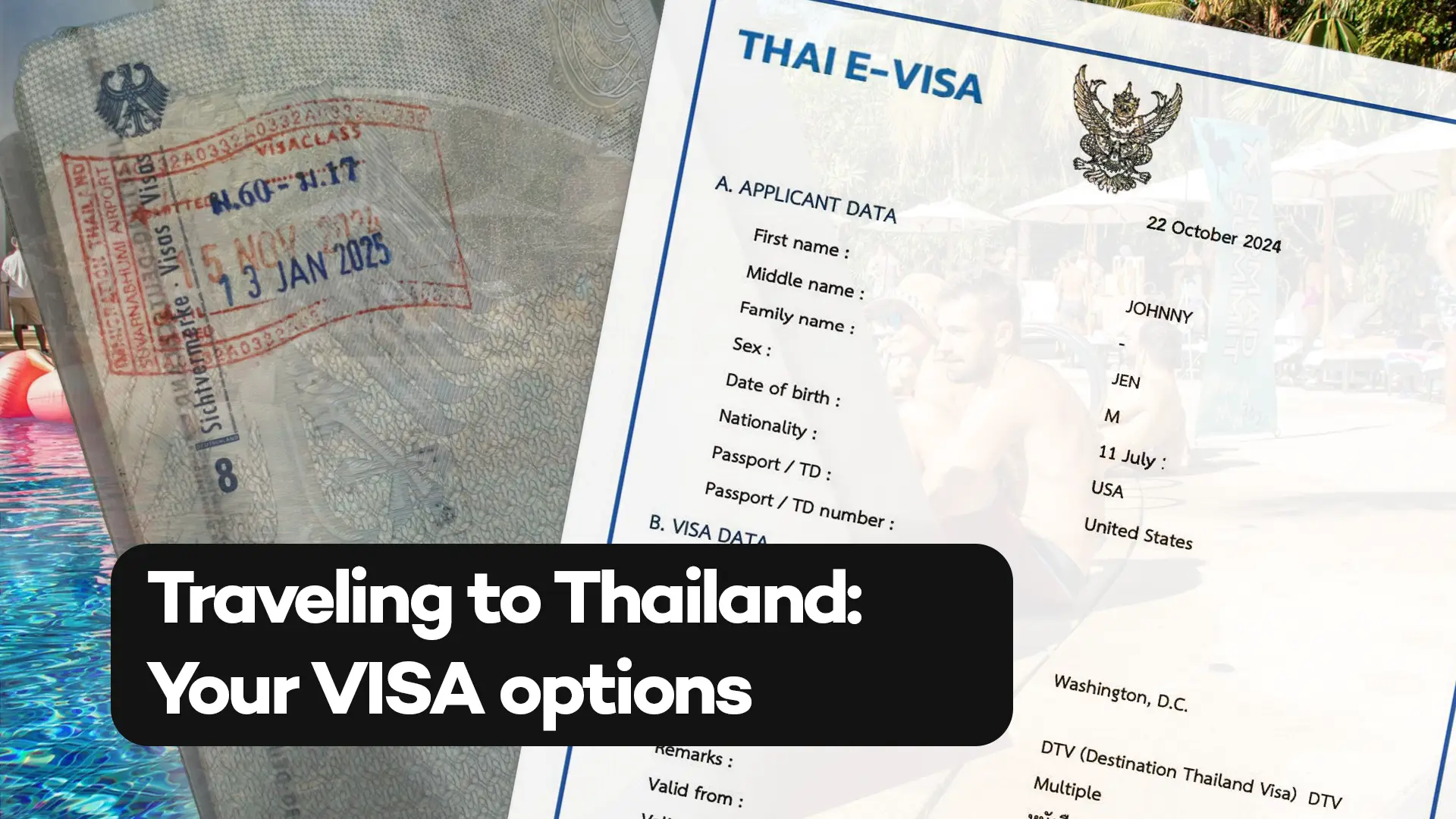The Nomad Summit 2025 in Chiang Mai is the must-attend event for digital nomads, remote workers, and entrepreneurs passionate about building and connecting. Planning your trip involves not only booking flights and accommodations but also understanding Thailand’s visa policies, especially if you’re considering an extended stay.
With updated visa-free rules and the introduction of the Digital Nomad Visa (DTV), traveling to Thailand has never been easier for both short-term visitors and long-term digital nomads. In this guide, we’ll explore everything you need to know about entering Thailand, staying longer, and making the most of your time in this digital nomad paradise.
Thailand’s Visa-Free Program: Travel with Ease
As of July 2024, Thailand has extended its visa-free travel program, making it even more attractive to global travelers. Under the new rules, citizens of 60+ countries can now enjoy a 60-day visa-free stay, with the option to extend for an additional 30 days.
Key Details About Visa-Free Travel to Thailand 2024 and 2025
- Duration: 60 days visa-free, extendable by 30 days for a total of 90 days.
- Eligible Countries: Citizens from countries such as the US, UK, Germany, Australia, Japan, and more qualify for this program. A full list of eligible countries is provided below.
- Required Documents:
- Passport valid for at least 6 months.
- Proof of onward travel (e.g., a return ticket).
- Sufficient funds to support your stay (this may be checked at immigration).
- Extension Process: Apply for a 30-day extension at a local Thai immigration office or here online.
The fee is approximately 1,900 THB (~$50 USD).
This program is ideal for attendees of the Nomad Summit who plan to stay for the conference, explore Chiang Mai and other places in Thailand, and immerse themselves in the vibrant nomad community.
A Personal Story: Christoph’s Smooth Arrival

Christoph with his passport stamp at CAMP in Chiang Mai while writing this text
Nomad Summit co-organizer Christoph recently arrived in Thailand using the visa-free program and shared his seamless experience:
“I was in the queue at Bangkok airport for less than 5 minutes. The entire immigration process—taking fingerprints, having a photo taken, stamp, done—took less than 60 seconds. No questions asked. No onward ticket needed, no funds to show. As smooth as it can be!”
This straightforward process sets the stage for a stress-free entry into Thailand, making it perfect for event attendees from around the world.
Full List of Visa-Free Countries
Citizens from the following 93 countries are eligible for 60-day visa-free entry to Thailand:
- Asia
Bahrain, Bhutan, Brunei, Cambodia, China, Georgia, Hong Kong, India, Indonesia, Israel, Japan, Jordan, Kazakhstan, Korea (ROK), Kuwait, Laos, Macao, Malaysia, Maldives, Mongolia, Oman, Philippines, Qatar, Russia, Saudi Arabia, Singapore, Sri Lanka, Taiwan, Türkiye, Uzbekistan, Vietnam - Europe
Albania, Andorra, Austria, Belgium, Bulgaria, Croatia, Cyprus, Czechia, Denmark, Estonia, Finland, France, Germany, Greece, Hungary, Iceland, Ireland, Italy, Kosovo, Latvia, Liechtenstein, Lithuania, Luxembourg, Malta, Monaco, Netherlands, Norway, Poland, Portugal, Romania, San Marino, Slovakia, Slovenia, Spain, Sweden, Switzerland, Ukraine, UK - North America
Canada, Cuba, Dominica, Dominican Republic, Guatemala, Jamaica, Mexico, Panama, Trinidad and Tobago, USA - South America
Brazil, Colombia, Ecuador, Peru, Uruguay - Oceania
Australia, Fiji, New Zealand, Papua New Guinea, Tonga - Africa
Mauritius, Morocco, South Africa
(For an updated list, visit the official website of the Thai consulate in Munich or the Embassy in Helsinki.)
The Digital Nomad Visa (DTV): A Long-Term Solution
For digital nomads planning to stay longer and work remotely, Thailand’s Digital Nomad Visa (DTV) is a game-changing option. Introduced in 2024, the DTV (for “Destination Thailand Visa”) allows remote workers to live and work in Thailand for up to 10 years, divided into two 5-year periods.
Key Features of the DTV
- Validity:
5 years, renewable for another 5 years. - Benefits:
Long-term residency without frequent visa runs.
Tax incentives, including the possibility of reduced income tax rates.
Access to services such as opening bank accounts and renting property.
Eligibility Criteria
To qualify for the DTV, applicants must:
- Prove Employment:
Either work for a company outside Thailand or demonstrate freelance/entrepreneurial work. - Meet Income Requirements:
Earn at least $80,000 annually (or $40,000 with additional qualifications like a master’s degree). - Provide Health Insurance:
Coverage of at least $50,000 USD for the duration of your stay.
Application Process
- Submit your application online via the Thai Embassy portal.
- Pay a one-time fee of $400 USD.
- Approval is typically granted within 2-3 weeks.
Johnny FD’s Journey to Securing the DTV

Nomad Summit founder Johnny FD was among the first to obtain the DTV and shared his excitement in a recent Facebook post:
“This was the visa we all dreamed about, and it’s finally here and easily obtainable. I applied online on October 9th and received it on October 23rd—exactly 2 weeks. It was all done completely online through the Thai Embassy portal in Washington, D.C.”
Johnny highlighted the affordability of the visa compared to alternatives:
“The cost was just $400, which is a crazy good bargain compared to the $25,000 Thai Elite Visa. For $80 a year, I can now come and go from Thailand, getting a 6-month stamp every time I arrive.”
For digital nomads looking to establish a base in Thailand, the DTV offers unprecedented flexibility and ease.
Practical Travel Tips for Nomad Summit Attendees
- Arriving Smoothly:
Fly into Bangkok’s Suvarnabhumi Airport (BKK) or Chiang Mai International Airport (CNX).
Have your documents ready, including your passport (and to be fully on the safe side a proof of onward travel). - Health Insurance:
While not mandatory for visa-free stays, having travel insurance is highly recommended. Especially when you’re traveling for more than just one trip we highly recommend to check out this free guide on insurance for nomads published by independent brokers. - Accommodation:
Stay close to the action by booking a room at the Shangri-La Hotel, the official Nomad Summit venue, or explore affordable co-living spaces and Airbnbs. Read our full article on the topic here. - Transportation:
If you have time, consider the night train from Bangkok to Chiang Mai for a unique travel experience.
Nomad Summit 2025: Why Chiang Mai?
Chiang Mai as the unraveled world capital of remote work and digital nomad lifestyle has long been a favorite for the global nomads community, offering:
- Affordable Living: Low costs for housing, food, and coworking spaces
(this text right here is being edited and published from CAMP in the Maya Mall). - Fast Internet: Reliable and fast internet access throughout the city.
- Vibrant Community: A hub for remote workers and entrepreneurs.
Nomad Summit 2025 will bring together over 400 attendees for an unforgettable experience of learning, networking, and building.
Join Us in Chiang Mai
With Thailand’s updated visa policies, attending the Nomad Summit 2025 has never been easier. Whether you’re visiting for a short stay or planning to settle as a digital nomad, this is your chance to connect with like-minded individuals and be part of a thriving global community.
Ready to join us? Plan your trip today and secure your spot at the event.




